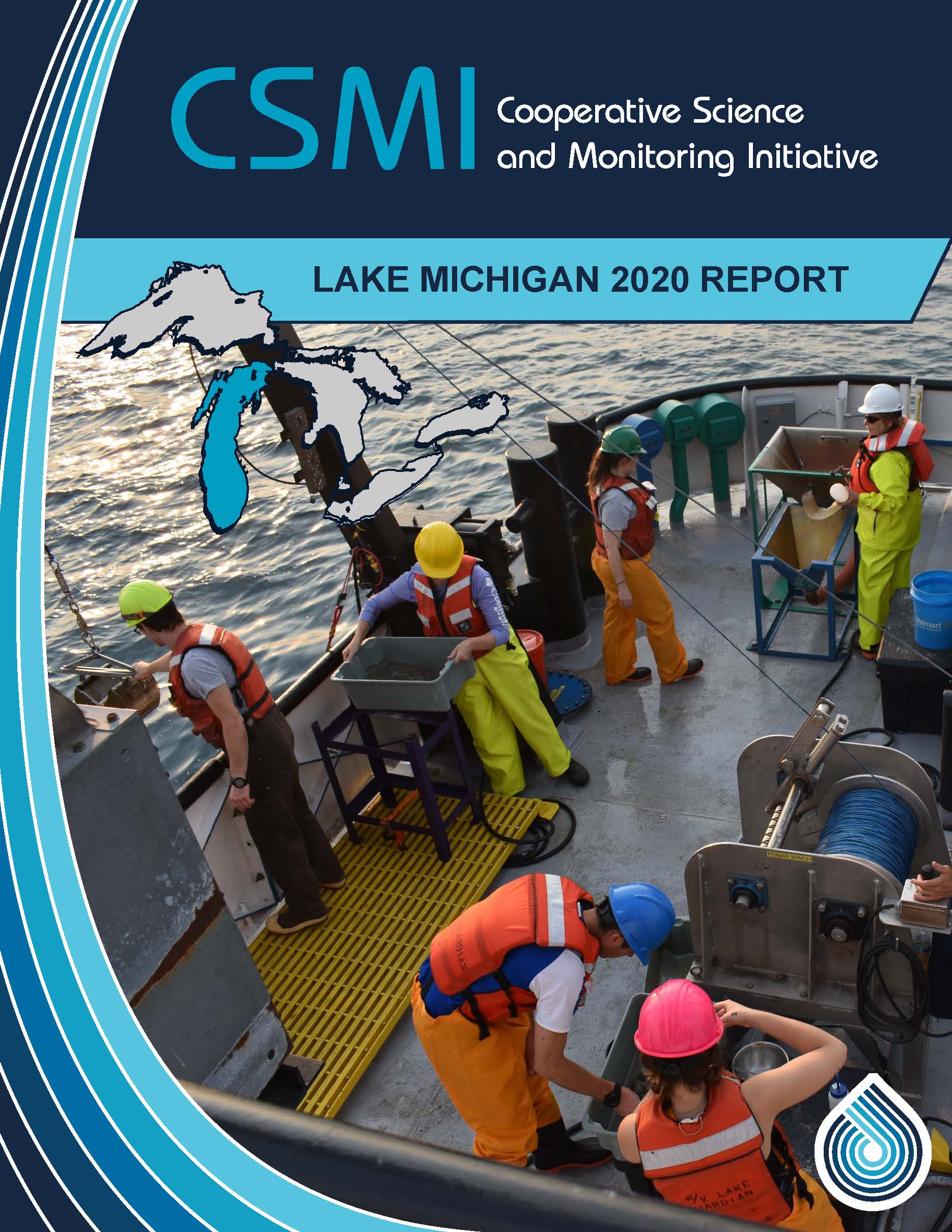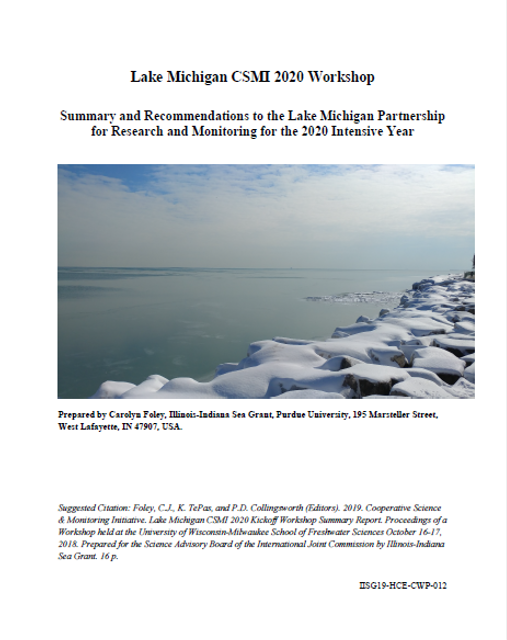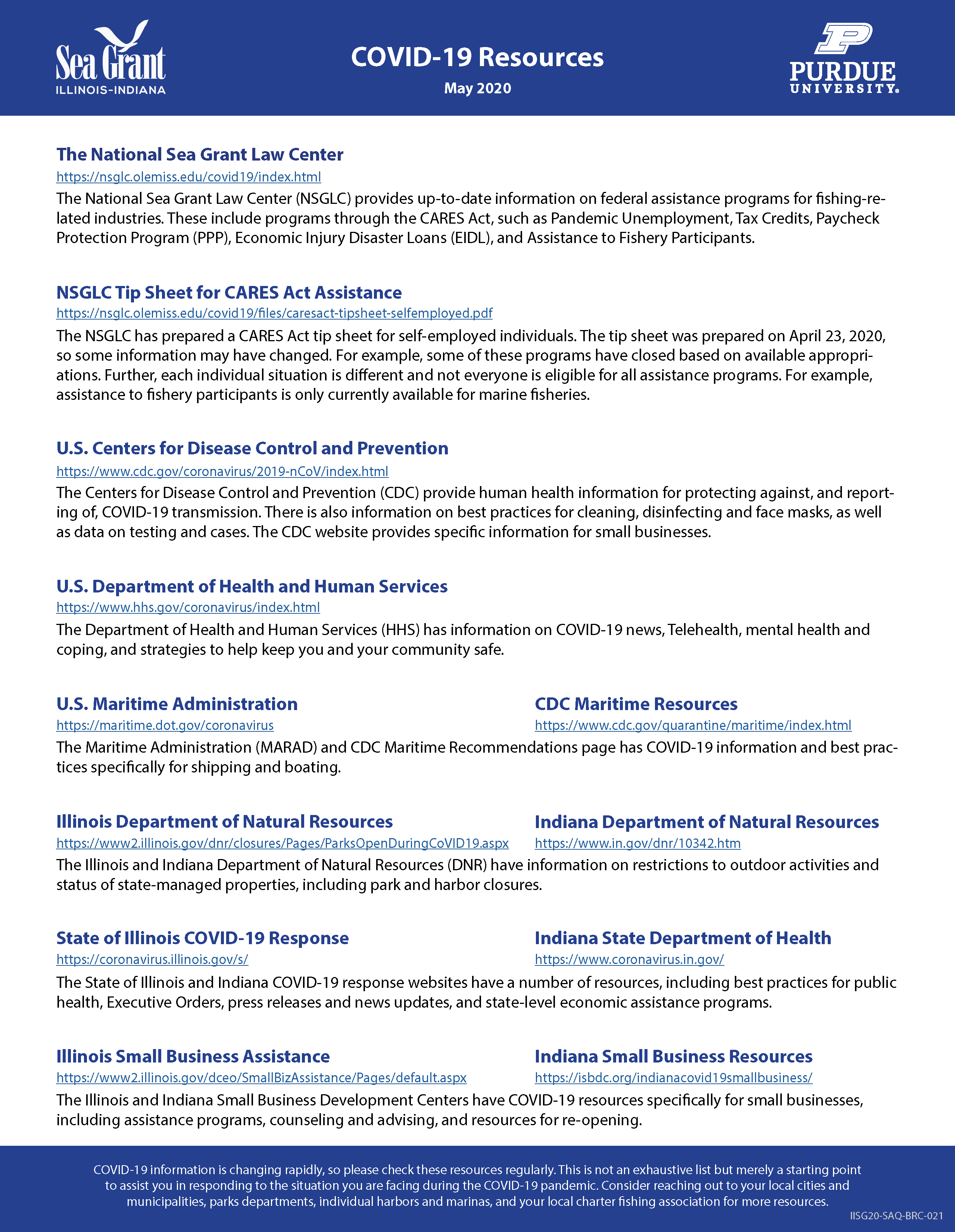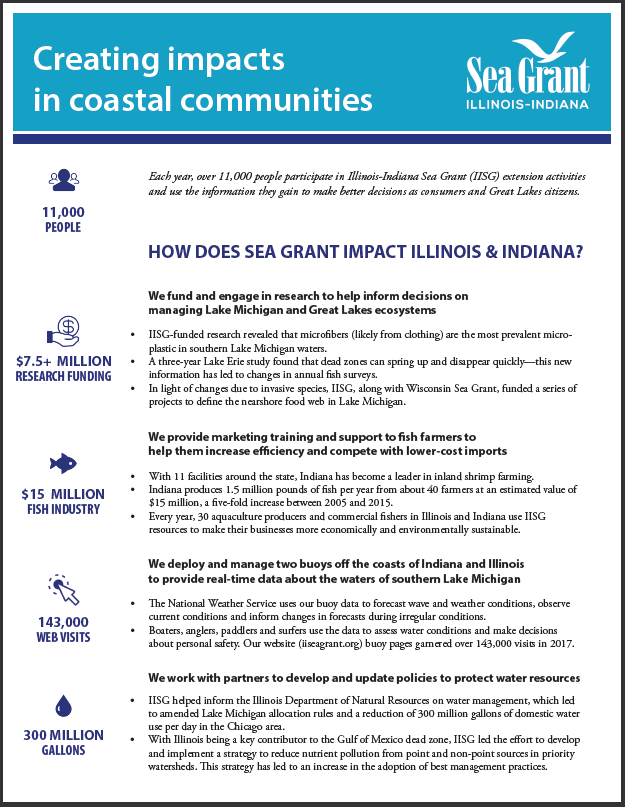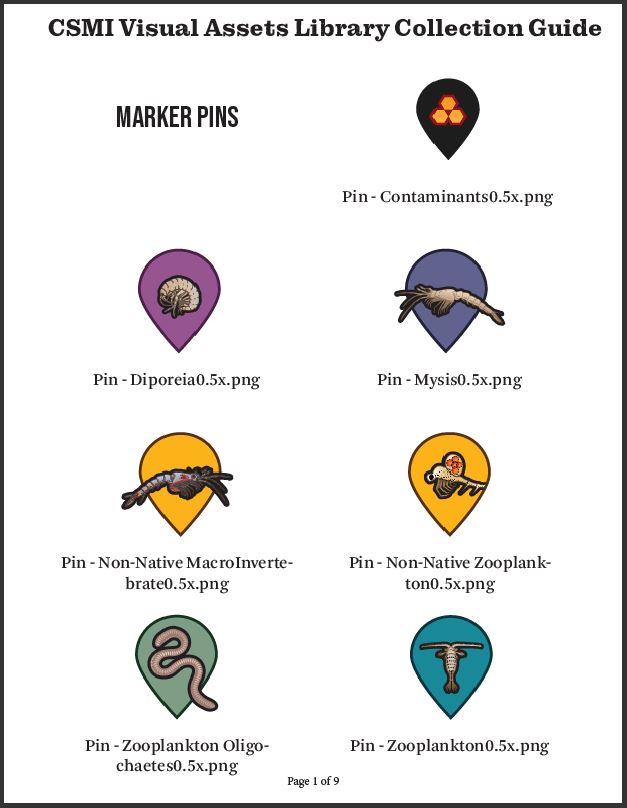Results
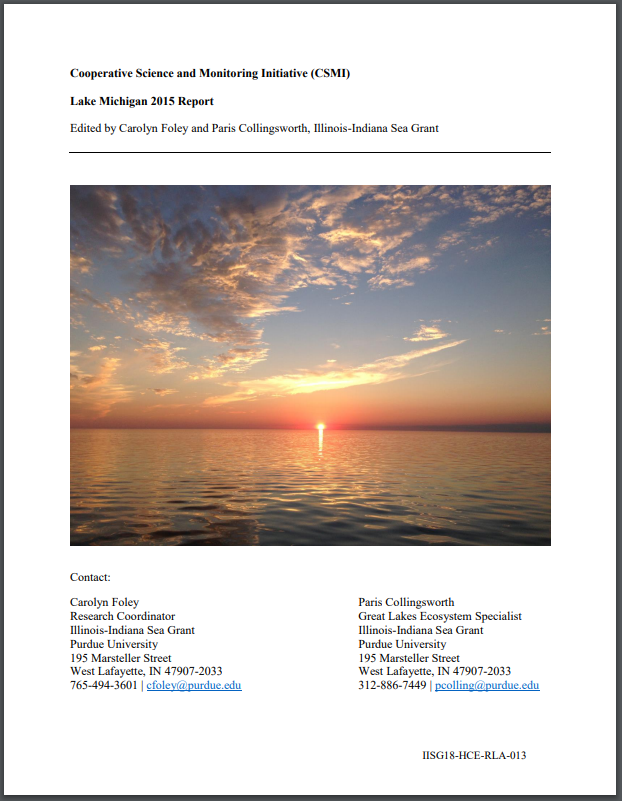
File Type: pdf
File Size: 7.78 MB
Year: 2018
The role of the Cooperative Science and Monitoring Initiative (CSMI) is to provide enhanced monitoring and research activities that provide relevant information to address the science priorities of the Lake Partnerships (established under the Lakewide Management Annex of the 2012 Great Lakes Water Quality Agreement) across the Laurentian Great Lakes. The Lake Michigan Partnership, a collaborative team of natural resource managers led by the U.S. Environmental Protection Agency with participation from federal, state, tribal, and local governments or agencies, uses the information collected through CSMI to help develop long term ecosystem-based management strategies for protecting and restoring Lake Michigan’s water quality. On a practical level, CSMI is an intensive effort to collect information on the health of each lake, rotating to one Great Lake each year. In 2015, it was Lake Michigan’s turn. This is an executive summary of the 2015 research results and the associated white paper containing more specific information.
Download File
File Type: pdf
File Size: 10.31 MB
Year: 2024
The role of the Cooperative Science and Monitoring Initiative (CSMI) is to direct enhanced monitoring and research activities across each of the Laurentian Great Lakes to provide relevant information to address the science priorities of each Lake Partnership (established under the Lakewide Management Annex of the 2012 Great Lakes Water Quality Agreement). CSMI is an intensive effort to collect information on the health of one Great Lake each year, cycling through the lakes on a five-year period. In 2020/2021, it was Lake Michigan’s turn (over a two-year period due to COVID). This is an executive summary of the 2020/2021 research results and the associated white paper containing more specific information.
Download File
File Type: pdf
File Size: 618.04 KB
Year: 2019
On October 16 and 17, 2018, nearly 60 scientists and managers met at a workshop in Milwaukee, WI to discuss research needs for Lake Michigan. The workshop, sponsored by the International Joint Commission through its Science Advisory Board Research Coordination Committee and organized by Illinois-Indiana Sea Grant, was part of the Cooperative Science Monitoring Initiative (CSMI). The main purpose of the meeting was to kick off discussions about research priorities to be considered during the 2020 CSMI intensive field year on Lake Michigan. This document summarizes the meeting proceedings.
Download File
File Type: pdf
File Size: 69.62 KB
Year: 2020
This flyer lists a number of state and federal resources available for charter operators relating to COVID-19.
Download File
File Type: pdf
File Size: 238.74 KB
Year: 2018
We use research, outreach, and education to bring the latest science to Great Lakes communities and their residents. Here is a quick summary of IISG impacts in the region for educating interested parties about what Sea Grant does.
Download File
File Type: zip
File Size: 10.85 MB
Year: 2019
The CSMI Visual Asset Library is a catalog of 56 graphic elements that can be downloaded and used to create scientific visuals and illustrations. These graphics were originally created to illustrate the changing Lake Michigan food web as part of the outreach efforts for the 2015 Cooperative Science and Monitoring Initiative. Illinois-Indiana Sea Grant is making these available to the public as a resource of scientifically accurate, professionally-designed food web assets that may be used to enhance reports, presentations, and any other activities intended to communicate Lake Michigan food web characteristics.
There are 2 parts to this product entry: a .pdf overview which shows examples of all the design elements available in the set, and a .zip file of the actual visual assets.
Download Visual Assets Library Collection Guide
Download File
Page 9 of 37
Note: Some older Illinois-Indiana Sea Grant publications have not yet been restructured into ADA compliant formats. We are actively working on this. If you are having difficulty accessing a particular item in one of our databases, please contact iisg@purdue.edu with the name of the item and its URL for further assistance.


